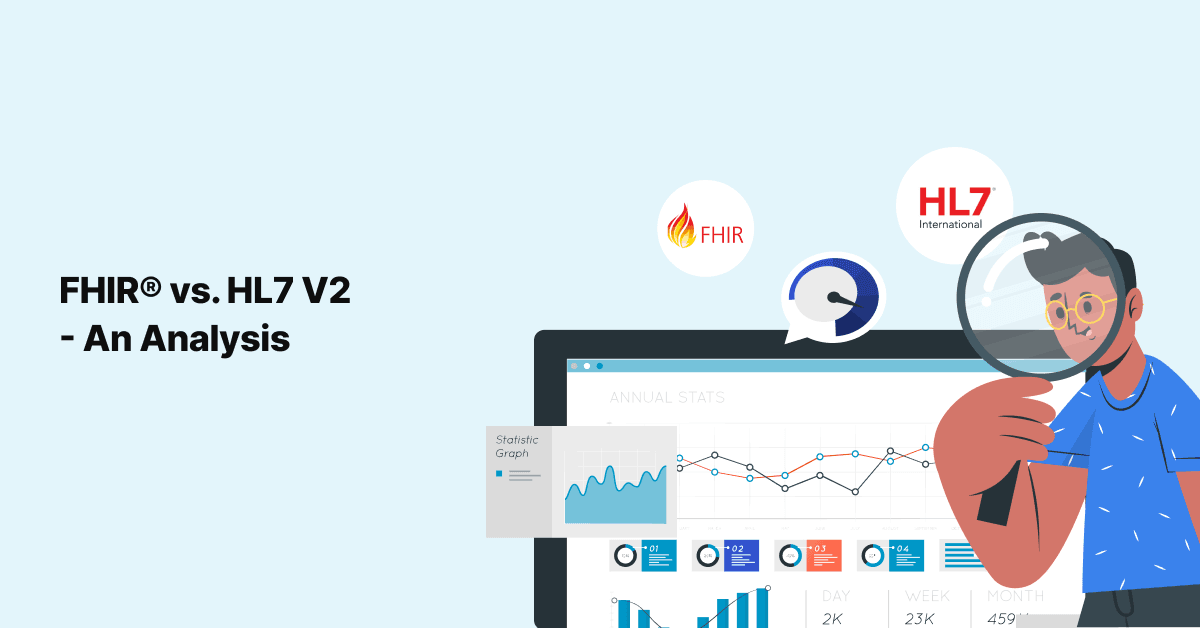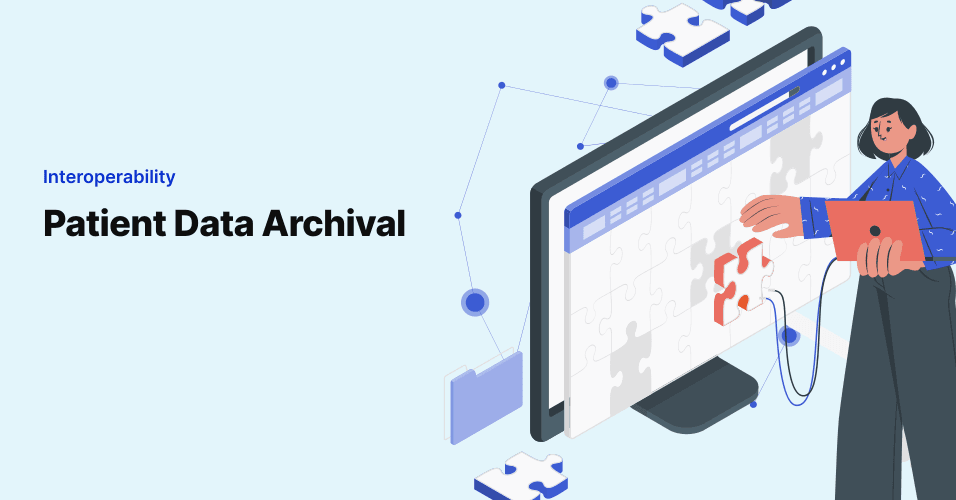
FHIR® vs. HL7 v2 - An Analysis
In the modern healthcare industry, data plays a very important role in terms of improving patient outcomes. …

It is certainly not just in your health system but in almost all the renowned health systems that the emphasis on the term “healthcare interoperability” has kindled curiosity.
The attention toward Electronic Medical Record (EMR) and Electronic Health Record (EHR) interoperability is growing in leaps and bounds, and interoperability is being prioritized across the world of healthcare. As per a recent report, the global healthcare interoperability market is estimated to reach USD 5.7 billion by 2026 from USD 2.9 billion in 2021, at a CAGR of 13.9%. Interoperability has become quite crucial in healthcare owing to its ability to increase transparency and accessibility and thereby improve the quality of care provided to patients.
In this article, you will discover:
Healthcare interoperability has been discussed to a great extent recently, and knowing the significance of interoperability, most experts consider it to be more than just a buzzword. Interoperability is believed to be extremely important in healthcare for the following reasons:
Interoperability between EHRs ensures that healthcare providers have ready and easy access to comprehensive patient health data. This provides the complete big picture of an individual’s health status, thereby enabling life-saving healthcare decisions to be taken.
By sharing patient health information between key stakeholders, EHR interoperability can potentially reduce ambiguity and enhance workflow. This creates an environment that is strongly built on transparent communication and ultimately paves the way for better health outcomes.
EHR interoperability offers the option of large-scale data sharing, which can be extremely useful in the case of a global healthcare crisis like the COVID-19 pandemic. It helps providers better understand public health problems and improve the efficiency of care.
Interoperability has become a key cornerstone in today’s healthcare. Its importance is appreciated to such an extent that the Office of the National Coordinator for Health Information Technology (ONC) launched an initiative called the Health Interoperability Outcomes 2030. The initiative focused on hearing out to the public about how they envision interoperability by the year 2030. The main idea behind the initiative is to come out with a long-term plan and strategies for interoperability. The launch of the initiative is by itself an indication of how interoperability is expected to grow in the time to come.
The best way to determine the path for the future is to analyze and identify where we are falling behind at present. EHR interoperability is bound to do great things for healthcare but faces certain hurdles, such as the following, an indication of where it falls short:
The following are some of the trends that are crucial and working on perfecting the path for interoperability:
Join over 3,200 subscribers and keep up-to-date with the latest innovations & best practices in Healthcare IT.

In the modern healthcare industry, data plays a very important role in terms of improving patient outcomes. …

At its core, healthcare data archival solutions serve as secure repositories for legacy electronic health …

Currently, we are experiencing the important need to fight and reduce the spread of Covid-19. Appropriate …